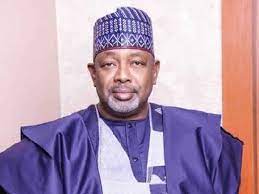The Federal Government has initiated a new move to secure $500 million from the World Bank Group for construction/rehabilitation of rural roads and by so doing, support agricultural produce marketing nationwide.
A final draft of the Resettlement Policy Framework for the Nigeria Rural Access and Agricultural Marketing Project Scale-Up (RAAMP-SU) by the Federal Ministry of Agriculture and Food Security indicated that the loan would help to address the challenge of poor road infrastructure in the rural areas and facilitate farmers and other economic players connection with the urban markets for national socioeconomic benefits.
The Framework stated: “Nigeria’s road network is relatively extensive, encompassing approximately 194,000 kilometres of roads. This includes 34,000 kilometres of federal roads, 30,000 kilometres of state roads, and 130,000 kilometres of registered rural roads. The road density equates to about 0.21 kilometres of roads per square kilometre.
“Despite this relatively high road density, the rural accessibility index for Nigeria (defined as the proportion of the rural population residing within 2 kilometres of an all-weather road) stands at a mere 25.5 per cent, resulting in approximately 92 million rural inhabitants lacking connectivity.
“Rural access is particularly restricted in areas densely populated by the economically disadvantaged. These factors underscore the imperative to expand and enhance the rural road network, as well as conserve rural road and transport assets”, it added.
According to the document, the total cost of the RAAMP-SU project is estimated at $600 million, of which the World Bank is expected to provide 83.33 percent, which is about 79 per cent higher than the development finance institution’s initial commitment of $280 million to the parent project.
The RAAMP-SU project will finance three main components, namely Improvement of Resilient Rural Access, estimated to cost $387 million; Climate Resilient Asset Management, estimated at $158 million; and Institutional Strengthening and Project Management, totalling $55 million.
The policy document requires any state government desirous of participating in the project’s implementation to have fully functional Roads Fund and Roads Agency with appointed Boards and staff, as well as provisions for administrative costs in the state’s budget.
It further clarified: “While the eligibility for state participation under RAAMP required the drafting and placement of Road Fund and Road Agency bills in the State House of Assembly, the new project would require the state to have a fully functional Roads Fund and Roads Agency with appointed boards and staff, and provision for administrative costs made in the state budget. In addition, RARAs offer an opportunity to foster women’s representation in the transport sector.
“The RAAMP-SU’s funds will be allocated on a competitive basis between states factoring in: (a) a refined socioeconomic selection matrix to increase rural access to basic services and promote food security; (b) activities readiness in terms of design; and (c) state’s demonstrated commitment in the project infrastructure efficient maintenance, including potential co-financing from their own resources”, it added.
The RAAMP-SU Framework also stipulates that the implementation of resettlement and compensation plans is a prerequisite for project activities that cause resettlement while compensation and other assistance are expected to be provided prior to displacement, ensuring that necessary measures for settlement and compensation are in place before any land acquisition or restriction of access.
The RAAMP-SU initiative is an extension of the former Rural Access and Agricultural Marketing Project (RAAMP) led by the Federal Ministry of Agriculture and Rural Development (FMARD) and supported by the World Bank and French Development Agency.






